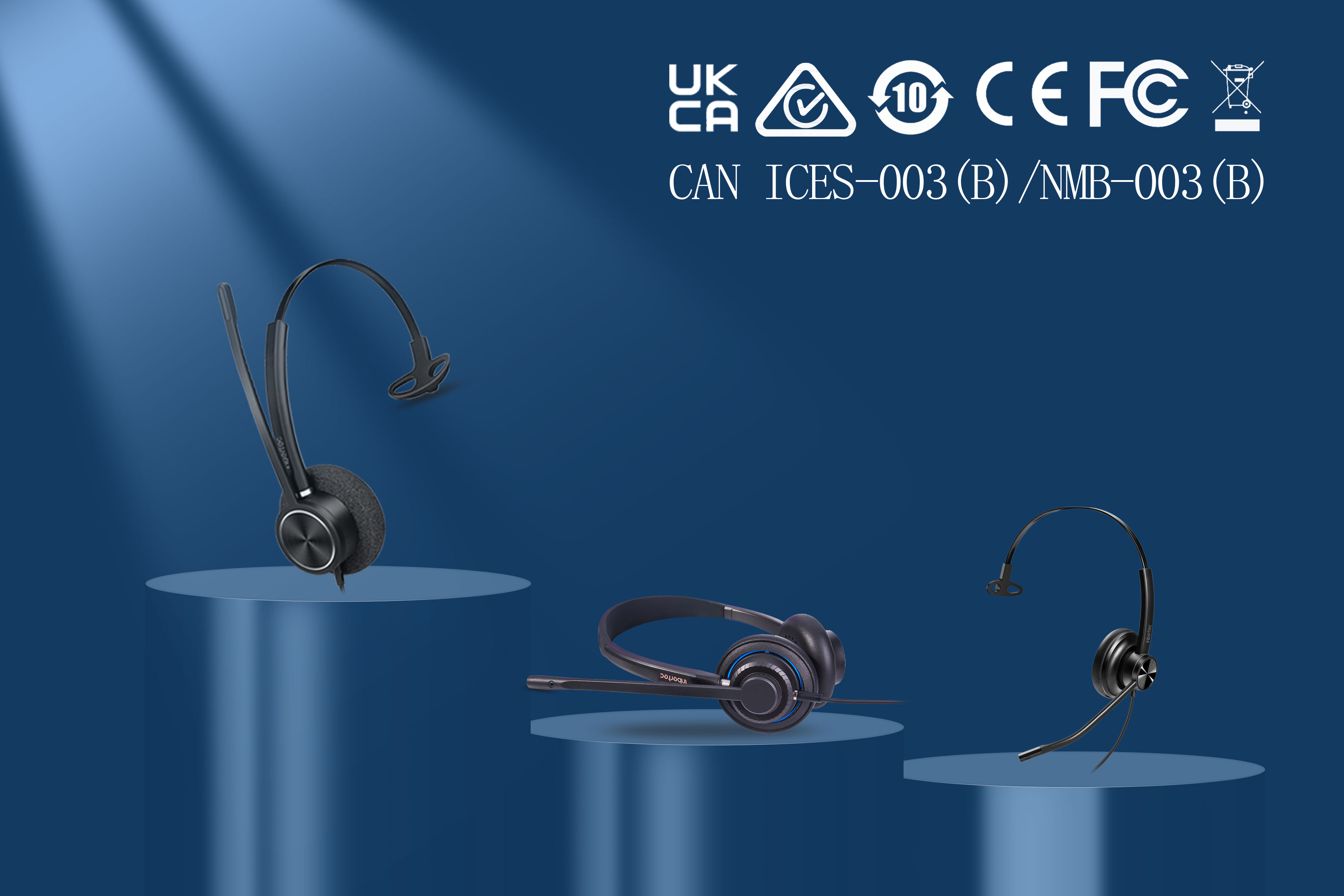Call center headsets are essential tools for professionals in customer service, telemarketing, and other communication-intensive roles. To ensure these devices meet industry standards for quality, safety, and compatibility, they must undergo various certifications. Below are the key certifications required for call center headsets:
1. Bluetooth Certification
For wireless call center headsets, Bluetooth certification is crucial. This certification ensures the device complies with the standards set by the Bluetooth Special Interest Group (SIG). It guarantees interoperability with other Bluetooth-enabled devices, stable connectivity, and adherence to performance benchmarks.
2. FCC Certification (Federal Communications Commission)
In the United States, call center headsets must comply with FCC regulations. This certification ensures the device does not interfere with other electronic equipment and operates within the designated frequency ranges. It is mandatory for both wired and wireless headsets sold in the U.S.

3. CE Marking (Conformité Européenne)
For headsets sold in the European Union, CE marking is required. This certification indicates that the product meets EU safety, health, and environmental protection standards. It covers aspects such as electromagnetic compatibility (EMC) and radio frequency (RF) emissions.
4. RoHS Compliance (Restriction of Hazardous Substances)
RoHS certification ensures that the headset is free from hazardous materials such as lead, mercury, and cadmium. This is particularly important for environmental safety and compliance with regulations in the EU and other regions.
5. ISO Standards (International Organization for Standardization)
Call center headsets may also need to meet ISO standards, such as ISO 9001 (quality management) and ISO 14001 (environmental management). These certifications demonstrate the manufacturer’s commitment to quality and sustainability.
6. Hearing Safety Certifications
To protect users from hearing damage, headsets must comply with hearing safety standards. For example, the EN 50332 standard in Europe ensures that the sound pressure levels are within safe limits. Similarly, OSHA (Occupational Safety and Health Administration) guidelines in the U.S. address workplace hearing safety.
7. Country-Specific Certifications
Depending on the market, additional certifications may be required. For example, in China, the CCC (China Compulsory Certification) is mandatory, while in Japan, the PSE (Product Safety Electrical Appliance and Material) mark is required.
8.WEEE Certification: Ensuring Environmental Responsibility in Electronics
The Waste Electrical and Electronic Equipment (WEEE) certification is a critical compliance requirement for manufacturers and distributors of electronic and electrical equipment, including call center headsets. This certification is part of the WEEE Directive, a European Union regulation aimed at reducing the environmental impact of electronic waste.
Certifications for call center headsets are critical to ensuring product quality, safety, and compliance with global standards. Manufacturers must navigate a complex landscape of regulatory requirements to meet the needs of diverse markets. For businesses and consumers, choosing certified headsets guarantees reliability, compatibility, and adherence to industry best practices. As the demand for advanced communication tools grows, these certifications will continue to play a vital role in shaping the future of call center technology.
Inbertec: Ensuring Your Headsets Meet All Required Certifications
Inbertec is a trusted partner for manufacturers and businesses seeking to ensure their products, including call center headsets, comply with essential certifications such as WEEE, RoHS, FCC, CE, and others. With expertise in regulatory compliance and testing, Inbertec provides comprehensive services to help your products meet global standards and gain market access.
Post time: Apr-03-2025




